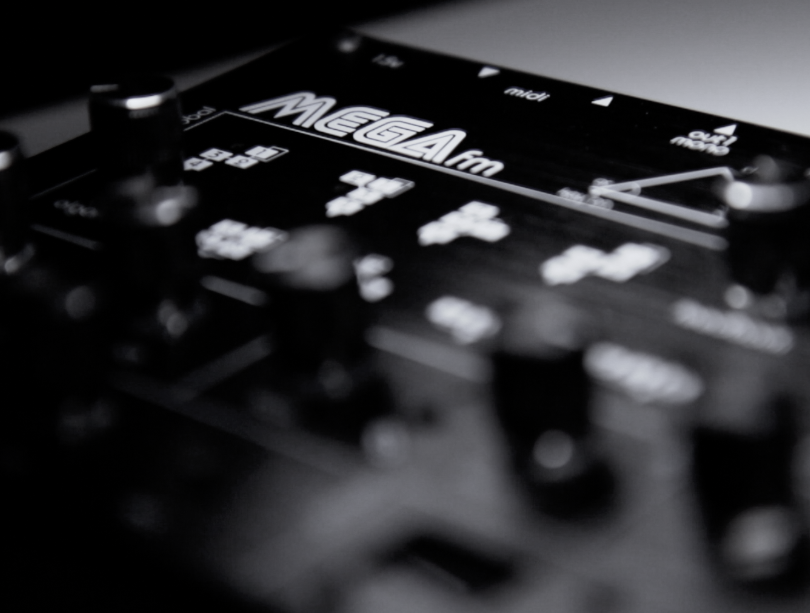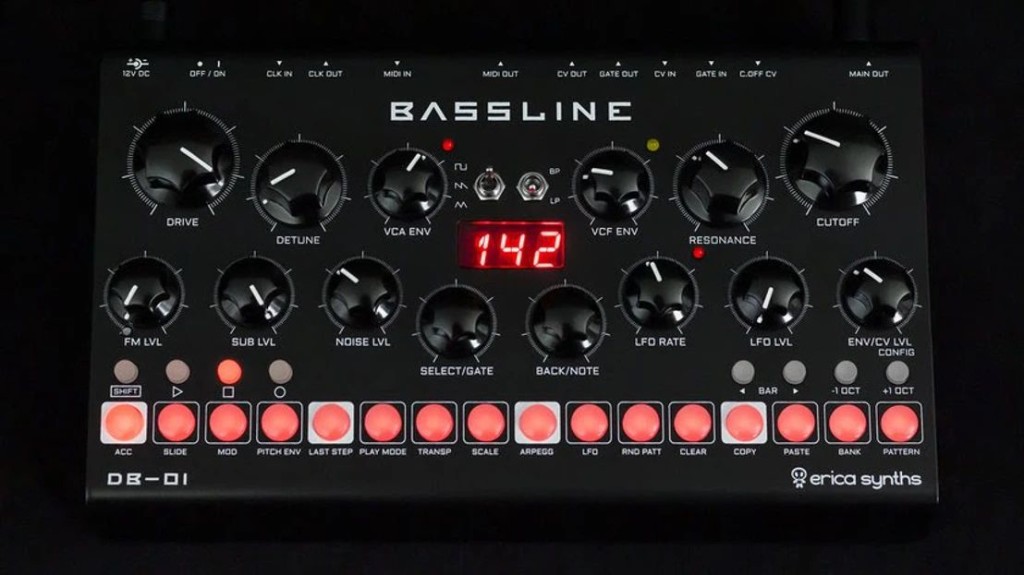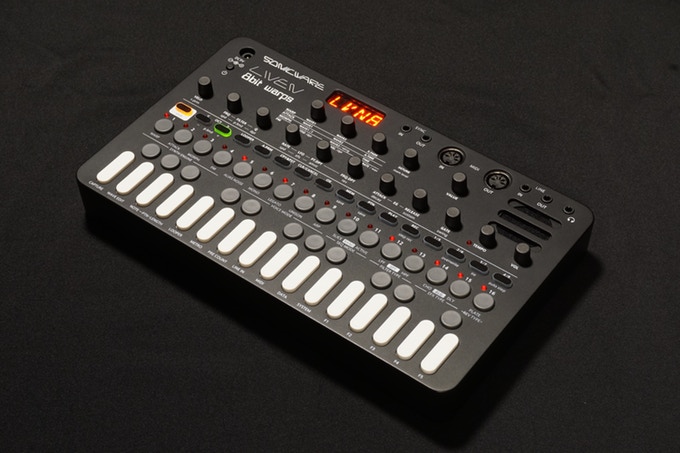Nothing new under the sun? Think again. Independent manufacturers are still creating novel designs for music making – and last week brought a lot of news.
Just as acoustic instruments often start with simple building blocks – blow on something, hit something, pluck something – these creations do work with existing known synth methods. (Think FM, wavetable, whatever.) But let’s dump the notion that “everything” is a clone now, just because one manufacturer starting with the letter B has been pulling its product news from a 1981 Roland product catalog.
In fact, there’s so much new stuff, it’s easy to get lost. So here’s your quick guide.

MEGAfm
The pitch: It’s a powerful synth with the heart of a SEGA. Imagine a hands-on, polyphonic instrument built around the same chip that powered the SEGA Megadrive and Genesis game consoles.
Who makes it: Indie French builder Twisted Electrons, who already has a great track record with handheld and desktop acid and chip music synths, plus a Eurorack modular collaboration with Crea8audio.
Specs in a nutshell: 12 voice polyphony (and various voicing modes), two of the YM2612FM chips already onboard, 8 algorithms, presets, tons and tons of controls, 3 LFOs, full MIDI I/O, and an arpeggiator and sequencer, all in an aluminum case.
How much, and when: 474EUR before VAT, apparently available now.
Buzz factor: This thing looks like a beast – an all-in-one, deep polyphonic chip music composition machine in a box, either with that onboard sequencer/arp or if you prefer using MIDI from the outside.
And oh yeah, prediction for 2020: the world will have a collective realization that we don’t always want to hear someone playing on a modular synth who sent over a four page rider and needs a three hour sound check, and chip music will come back. Nintendo Switch battles backstage, go!
Look/listen:
Learn more:

Erica Synths Bassline DB-01
The pitch: This is the bass from the luxury-priced Techno System, in a desktop box the rest of us can afford. So you get the distinctive Erica BBD delay-based detune on the oscillators, a swarming delicious sound, plus an aggressive Acidbox-derived filter, extras for modulation and dirt and noise, and an onboard sequencer.
Who makes it: Erica Synths, the Riga-based boutique superbrand who have turned ex-Soviet spaces and manufacturing into an assembly line for Latvian awesomeness – enough so that they hold their own festival every year. Look out, Ableton Loop.
Specs in a nutshell: DRIVE and DETUNE knob on the left. CUTOFF and RESONANCE on the right. There’s a reason the knobs are oversized for those. So it’s a transistor-based sub oscillator + overdrive + BBD-based detuned oscillators + noise source + syncable LFO + FM and VCF modulation + independent envelopes… well, you know that dessert menu item called “Chocolate Overload Deathwish”? This is what happens when that person specs out a bassline synth. Then add in CV + MIDI I/O, aluminum case, presets, and play either externally from analog or MIDI or with a simple onboard sequencer / arpeggiator.
How much, and when: Spring, 460 EUR.
Buzz factor: Sorry, 303. This thing is thicker / dirtier / nastier. I love the 303, but it’ll give you a daily fix of “wow, acid is my favorite thing ever,” before you get bored a few minutes later and switch it off. A DB-01, if you fall for it, will make you run away from home, assume a new identity, and live in a warehouse you squat in rural Latvia where you go feral and make nothing but experimental industrial music all day. Yes, Erica, you can quote me on that – if for no other reason than to warn the unwise.
Look/listen:

Sonicware LIVEN 8bit warps [Kickstarter]
The pitch: A lo-fi, grungy 8-bit synth with loads of voices plus onboard audio looping and lots of performance features (and warping) around the keyboard.
Who makes it: Sonicware, who created the portable ELZ_1 via Kickstarter – and which also shared a candy-bar keyboard design that recalls instruments from Casio and Teenage Engineering. It’s all the work of Yu Endo from Tokyo – part of a new generation of innovation in Tokyo’s synth scene.
Specs in a nutshell: Sequencer with chaining and real-time and step recordings and parameter locks per-step, sync and MIDI I/O, runs on batteries and has an internal speaker. Multiple synth engines (WARP, ATTACK, MORPH, FM) meet powerful envelopes and modulation and filtering, plus a bunch of FX (chorus, flanger, delay, hall, plate).
How much, and when: Well, delayed gratification as it’s Kickstarter, but estimated for June 2020. But amazingly, early bird starts at … EUR148.
Buzz factor: Come on, at this price, how can you say no to this 4-engine synth + looper + sequencer? One indie Japanese developer might just outdo the fun factor of a KORG volca for the same price, with a more flexible housing and more powerful features. Sure, a 16-bit engine might have made the different modes more varied, but – sounds like Yu-san has programmed this so you can exploit the 8-bit grime.
Look/listen:
Save up your pennies?
Honestly, I think any of one these three tops the other product reveals from this month. Sure, the KORG Wavestate looks powerful, but … the freak factor of that new Twisted box might well outdo the KORG offerings. It promises to build on everything designer Alex from Twisted has been working toward over the years.
The DB-01 meanwhile might quietly be the most indispensable thing Erica have done yet – it’s got some of the best bits of the Techno System, but in a form factor you can both a) actually afford and b) carry with you in an airBaltic carry-on allowance. Now if Erica just does a TR-01 drum machine to go with it, I’m completely sold.
And Sonicware have nailed the amount where you’d impulse-buy yourself a Kickstarter present for June.
So, dear Santa Claus… uh, wait, it’s the end of January… dear Saint Patrick, are you listening?
And with each of these priced under 500 bucks, can we collectively admit that the idea that independent synths are expensive or everything has to be a clone is just objectively not true? Thanks.